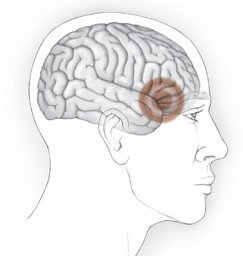Cluster headache
Medically reviewed by Drugs.com. Last updated on Jun 27, 2023.
What are cluster headaches?

Cluster headaches are very intense headaches. They usually start in the area around one eye, then spread to nearby areas of the face. Each headache lasts about a half-hour to three hours. Episodes can occur several times over 24 hours (in clusters). This happens daily, lasting several weeks to months.
Most cluster headaches occur at night. This condition affects men much more frequently than women. Some people discover they have "triggers" that start the headache, such as:
- alcohol
- certain foods, especially those with high amounts of nitrites (bacon for example)
- tobacco products
- bright lights
- hot weather or hot showers and baths.
On average, people experience one to three headache episodes daily for four to eight weeks. Once a cluster of episodes ends, the person may remain headache-free for months or years.
The cause of cluster headaches is unknown. They may be related to a temporary imbalance of brain chemicals.
Symptoms of cluster headaches
Symptoms of cluster headaches include:
- intense pain localized around one eye or near the temple. Pain is deep and explosive. It usually builds to maximum intensity within five minutes. The pain can spread to nearby areas of the cheek or jaw.
|
|
- a bloodshot or tearing eye on the affected side
- smaller pupil or droopy eyelid on the affected side
- runny nose or blocked nostril on the affected side.
Many people feel better when they remain active during their headaches. This is in contrast to those experiencing migraine headaches. Migraine sufferers tend to seek out a quiet, dark room.
Diagnosing cluster headaches
Your doctor will ask about your medical history and your headache symptoms. This will help differentiate between cluster-type headaches or an underlying disease.
Your doctor also will examine you to check for other possible causes of your headaches. If your exam is normal and your headaches fit the typical cluster pattern, you may not need any further testing.
However, your doctor may order diagnostic tests if you have your symptoms are atypical for cluster headache. These tests could include computed tomography (CT) or magnetic resonance imaging (MRI) scans of the head.
Expected duration of cluster headaches
Cluster headaches usually last a half-hour to three hours. They tend to occur one to three times daily for four to eight weeks.
Once a cluster of episodes passes, a person may remain headache-free for many months or sometimes years.
Preventing cluster headaches
The cause of cluster headaches remains a mystery. There is no way to prevent a first occurrence.
People who have already experienced cluster headaches may be able to help prevent future attacks. To do so:
- avoid alcohol
- 1uit smoking
- maintain a regular sleep pattern
- identify and avoid your "triggers."
Treating cluster headaches
It is difficult to stop the pain of the first cluster headache you experience. The headache usually disappears by the time you reach the doctor's office or emergency room.
Once the problem has been diagnosed, your doctor may prescribe a therapy for you to keep on hand.
Inhaling 100% oxygen through a facemask for about 15 minutes can help. It must be done at the first signs of an attack to be effective. This oxygen must be prescribed by a doctor and obtained through a medical supplier.
Certain drugs may be effective when used at the beginning of cluster pain. These include:
- triptans, such as sumatriptan (Imitrex), and rizatriptan (Maxalt)
- intranasal dihydroergotamine
- intranasal lidocaine -- safe but only occasionally effective.
Combining 100% oxygen with one of the triptans can be especially effective. However, dihydroergotamine should not be combined with a triptan.
Your doctor will likely suggest additional medication to break the cycle or at least help decrease the frequency of headaches. And it will help to shorten the length of the active cluster period. Multiple medications have been used for this purpose. The calcium-channel blocker verapamil (Calan, Isoptin) is usually the most effective. However, it may take a week or two before it starts helping. Prednisone has a quicker onset of action. One potential strategy is to start both prednisone and verapamil at the onset of cluster headaches. The prednisone can be tapered over the next seven to 10 days.
Your doctor may discuss the newest therapy for people with cluster headache. It's a monthly injection you give to yourself called galcanezumab (Emgality).
Don't be discouraged if the first strategy is not successful. You and your doctor may need to try a few different therapies to find the one that works best for you.
On very rare occasions, neurosurgery might be considered for headaches that don't respond to medical therapy. Surgical procedures have had variable success, at best. They include permanent nerve blocks and implantation of precisely placed electrodes in the brain.
When to call a professional
See your doctor if any form of headache:
- occurs on a regular basis
- begins to interfere with your daily activities.
Prognosis
No therapies or lifestyle changes can consistently prevent cluster headaches. Medical treatment can help shorten active periods. It can help decrease the number and severity of painful episodes.
Additional info
National Institute of Neurological Disorders and Stroke
https://www.ninds.nih.gov/
National Headache Foundation
https://www.headaches.org/
American Migraine Foundation
https://americanmigrainefoundation.org/
Further information
Always consult your healthcare provider to ensure the information displayed on this page applies to your personal circumstances.

